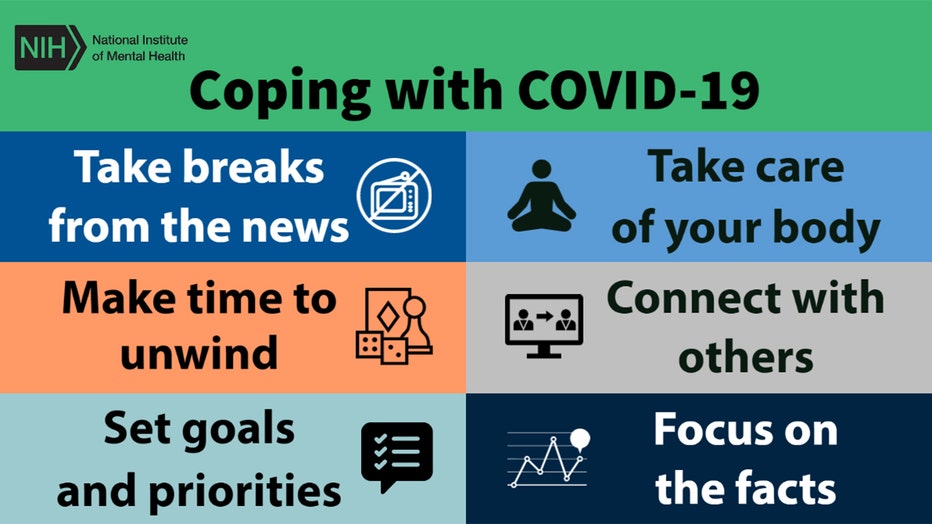Pandemic's mental health toll on minorities | Resources

Mental health and minorities
The coronavirus pandemic has disproportionately impacted communities of color, according to research. And that inequality is also present in mental health care.
NEW YORK - The coronavirus pandemic has disproportionately impacted communities of color, according to research. And that inequality is also present in mental health care.
In fact, the American Psychological Association found that in 2015 only 4% of therapists were Black, 5% were Hispanic, and 5% were Asian. Yet 86% of therapists identified as white.
The pandemic has taken a toll on all of us. But just as the virus has hit minority communities especially hard, so have the mental health impacts that have accompanied it.
"There's an old adage that says when America gets the flu, Black America gets pneumonia," said Nia Jones of the Black Mental Health Alliance, which helps people of color connect with mental health care.
She said the pandemic was especially hard on minorities because many still had to go to work when the virus was at its peak, constantly risking their and their families' health and safety. Plus, the killing of George Floyd and other Black men heightened fear and anxiety.
"Whenever you see someone who looks like you continually getting gunned down by police officers or others in the community, and you have to see that on the reel on TV, it is traumatic," Jones said.
Get breaking news alerts in the FOX 5 NY News app. Download for FREE!
On top of that, struggles with issues like depression and anxiety are less likely to be talked about in communities of color, according to Dr. Rheeda Walker.
"The stigma around mental health is real and I think it's because people hear 'mental health' and they think 'crazy health' and nobody wants to be crazy, right?" she said.
Walker is a professor of psychology at the University of Houston and the author of "The Unapologetic Guide to Black Mental Health."
"In marginalized communities where there's already several strikes against you for being a person of color, you don't want to add on top of that feeling like, 'Oh my goodness, someone is belittling me because they think I'm crazy or that there's something wrong with me.'"

Mental Health in a Pandemic
Any global pandemic is a massive threat to public health. And that includes mental health. (Produced by Arun Kristian Das)
On the flip side, Walker and Jones agreed that one silver lining of the pandemic and almost all mental health services going virtual is that more people may have been willing to give therapy a try.
"It has quite literally changed the game in terms of people having access to care," Jones said.
And telemedicine is now likely here to stay.
"A lot of other people who otherwise might not have thought seriously about mental health have been willing to see someone virtually because it just feels a little bit more comfortable," Walker said.
IMPORTANT RESOURCES
- National Suicide Prevention Lifeline 800-273-8255
- National Alliance on Mental Illness (NAMI)
- National Alliance on Mental Illness New York City Metro (NAMI-NYC)
- Black Mental Health Alliance: Connect with a Therapist
- NYC WELL 888-NYC-WELL (888-692-9355)
- NY Project Hope Emotional Support Helpline 844-863-9314
- NYS Office of Mental Health
- NJ Mental Health Cares Helpline 866-202-HELP (866-202-4357)
- NJ Mental Health Resources
- SAMHSA Disaster Distress Helpline 800-985-5990 or text 'TalkWithUs' to 66746
- NIH: Shareable Resources on Coping with COVID-19
- ARTICLE: How the coronavirus pandemic can attack your mental health

An infographic about COVID-19 and mental health from the National Institute of Mental Health. (NIH National Institute of Mental Health)

